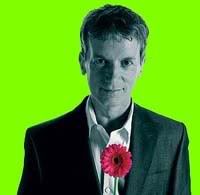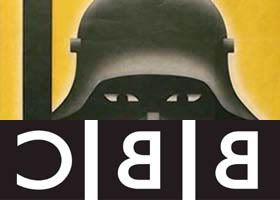
In Pamela Stephenson's biography of her husband, Billy, Stephenson reflects towards the end that in Connolly's earlier days he would come out with a strong swearword maybe once in a live performance (for adults), towards the end, and the effect would be all the more hilarious for the shock-value, whereas in his present shows his routines are littered with four-lettered words, which has rendered them pedestrian and unfunny.
Mary Whi
 tehouse, I think, realised the same thing when she complained bitterly about an episode of Johnny Speight's hit 1960's comedy Till Death do us part (remade in the US as All in the Family and Archie Bunker's Place) which contained 66 instances of the word "bloody" voiced by the chief character, Alf Garnett.
tehouse, I think, realised the same thing when she complained bitterly about an episode of Johnny Speight's hit 1960's comedy Till Death do us part (remade in the US as All in the Family and Archie Bunker's Place) which contained 66 instances of the word "bloody" voiced by the chief character, Alf Garnett.As a matter of fact, being not only human but Glaswegian, sometimes stress or shock causes an adjective to emerge without my having wanted it to. I'm somewhat unhappier with myself if that word is bloody than if it is the f-word - the latter appears to have passed from German to English via Anglo-Saxon and had various scatological definitions attached to it. But the former, which my Chambers dictionary describes as "almost meaningless", is descended from a Shakespearean interjection meaning "by Our Lady" and is, arguably, worse.
However, if I was round at your place, I would endeavour to say neither, becau
 se it would be conduct unbecoming of a guest. The same point was made by Sir Michael Grade, Executive Chairman of ITV and former Chairman of the Board of Governors of the BBC. Apparently having recovered from his stint as pornographer-in-chief of Channel Four he is finding, as head of Great Britain's most family-oriented terrestrial channel, that families don't like it when swearing comes unbidden from the idiot-box, and that while in everyday life he "swears like a trooper", he realises that people on the telly are guests in our houses.
se it would be conduct unbecoming of a guest. The same point was made by Sir Michael Grade, Executive Chairman of ITV and former Chairman of the Board of Governors of the BBC. Apparently having recovered from his stint as pornographer-in-chief of Channel Four he is finding, as head of Great Britain's most family-oriented terrestrial channel, that families don't like it when swearing comes unbidden from the idiot-box, and that while in everyday life he "swears like a trooper", he realises that people on the telly are guests in our houses.Grade was speaking to comedian Frank Skinner on BBC's Have I got Bad Language for You, in which he presents an insider's view on the turmoil the TV industry finds itself in over the public outcry about obscene messages left on an actor's answerphone by Jonathan Ross about his having had sex with his granddaughter.
Skinn
 er, who is experimenting with reducing the swearing on his stand-up show and finding that people appreciate the comedy just as much, was investigating the terrestrial British channels' attitude to swearing. It came across as a worthy effort, but the one thing Skinner didn't seem to realise was that "the industry" doesn't have a problem with swearing and general sociopathic behaviour. The BBC does.
er, who is experimenting with reducing the swearing on his stand-up show and finding that people appreciate the comedy just as much, was investigating the terrestrial British channels' attitude to swearing. It came across as a worthy effort, but the one thing Skinner didn't seem to realise was that "the industry" doesn't have a problem with swearing and general sociopathic behaviour. The BBC does.The problem lies in what BBC propaganda (it doesn't have advertising) refers to as the unique way in which it is funded. This boils down to the TV Licence, a sum of £139.50 ($192) payable yearly. If I see something I don't like on commercial TV I can turn over, as I can do if I see or hear something objectionable on the BBC; but while a commercial station will haemorrhage advertising revenue should it betray its standards, the BBC has no such guage - indeed, British people must by law pay through the nose for the privelege of being offended.
I wasn't too bothered initially about the Ross affair because I assumed the BBC would play fairly and kick him out - but, on reflection, perhaps his lawyers pointed out to the Corporation that in acting like a middle-aged playground bully he was doing nothing other than honouring his contract. The BBC then compounded its error by mounting a smear campaign upon the people who pay its wages by saying that the many listeners who complained about the show did so without having heard the messages (it removed the offending parts from the listen-again feature) and therefore were going on hearsay, despite the relevant parts of the broadcast being widely spread on Youtube.
Al Murray, who intermittently plays The Pub Landlord, a sort of modern Alf Garnett/Arc
 hie Bunker character, reflected on a note that he was given to "make the show a bit edgier" that he said "came from the very top" of the Corporation; this was denied, in what I reckoned to be a rehabilitation exercise for the BBC, in trying to posit a "crisis" existing outside its own walls.
hie Bunker character, reflected on a note that he was given to "make the show a bit edgier" that he said "came from the very top" of the Corporation; this was denied, in what I reckoned to be a rehabilitation exercise for the BBC, in trying to posit a "crisis" existing outside its own walls.Jonathan Ross returned from his twelve-week unpaid suspension on Friday 23 January for his pre-recorded TV show. The next morning, he was allowed to broadcast a show live on BBC Radio 2, and, eight minutes into the broadcast (starting at 10am) advised his producer about an elderly woman who would kiss and cuddle him in his house in Spain that he should "give her one last night...before the grave". Her son, José Maria Moreno, has complained to the BBC that his mother's Alzheimer's disease (manifested in the familiar behaviour) shouldn't be a topic for comedy.
In a sense the BBC and Ross reflect each other: they are macrocosm and microcosm. Both are capable of great broadcasting, but cannot escape from the compulsion to attract attention through controversy; they try to hold themselves back, but when that pressure can no longer be contained, they explode in obscenity.
Witness the situation regarding the BBC's refusal to air the Disaster Emergency Committee's appeal for funds to help suffering Palestinian children in the Gaza conflict. The video is touching but histrionic, and in its refusal to broadcast it the BBC has gathered more Israel-demonizing attention than the terrorist organisation of your choice has the money to pay for.
Neither the latest Ross elder-abuse episode nor the spurious pretence to impartiality are quite illegal. But both will break the law again - just as the answerphone messages, even if nobody was arrested, were illegally obscene - and when that happens Maxima and I will stop paying the licence fee. Meanwhile, both the BBC and Jonathan Ross are, ironically, in a situation that any broadcaster would envy, in that people all over the world are saying: we are watching you.












What a great idea - that the folks on the tube are guests in our home and should conduct themselves accordingly! Wish it would catch on....
ReplyDeleteI hate comedy workshops because there are no jokes that are not vulgar, in my experience. I went a few times, 20-something years ago, and decided that even though I laughed, it was out of embarassment for the fool the comic was making of himself, not because his jokes were funny. I hate seeing people make fools of themselves.
I am glad to see your mention of how horrible the 'b' word is. Most Americans think it's just a funny "British thing" and use it every time they mimic. My children, however, are quite offended by it, knowing it is an ugly reference of our Lady.
ReplyDeleteThe 'f' word is used far too often here. Just walk through the mall and you will hear teens, adults, regardless... all using it as a regular ajective. Sigh. I won't allow it in my house, guest or not.
I don't like comedy workshops either, Pam. My favourite description of "alternative" comedy is, "the same old jokes, only nobody's shaved". In fact, I'd rather listen to music, unless the comedy's really top-notch.
ReplyDeleteI'm glad to finally find somebody who agrees about the b-word, Linda. A lot of people over here use it as, in their minds, an acceptable alternative to the f-word, not realising its origins.